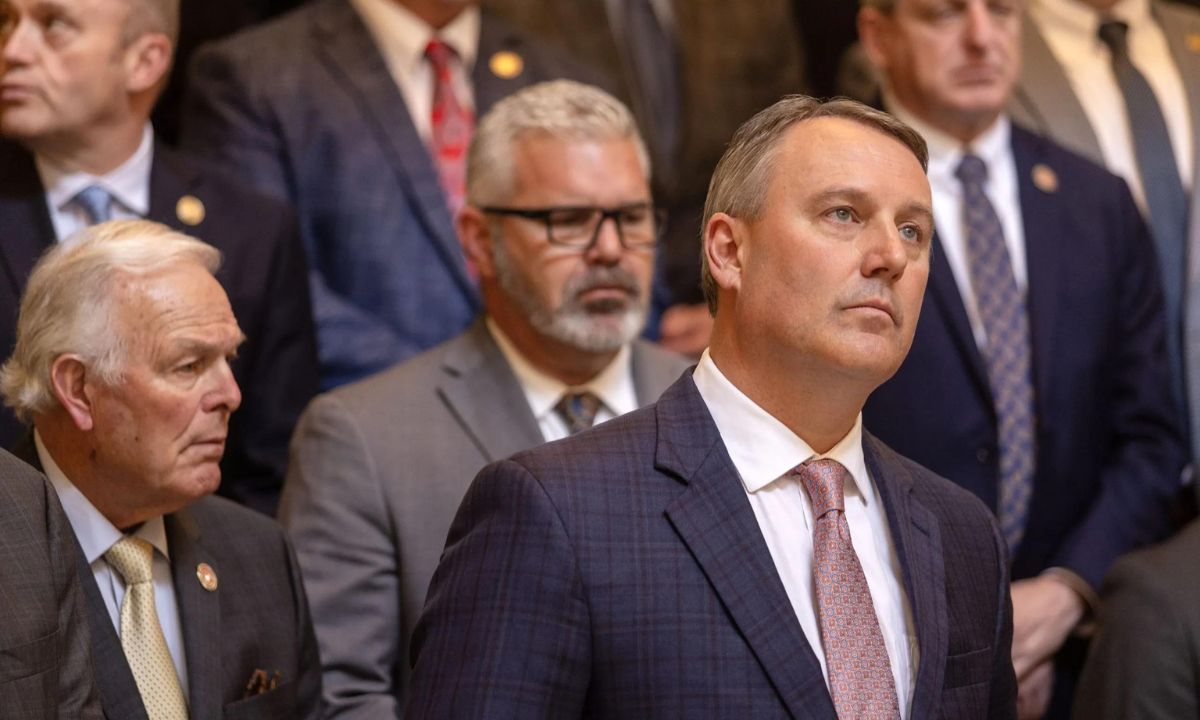A good old game of one-upmanship could break out between the House and Senate over which chamber is going to commit to more education funding. That would be welcome news for educators, who, like everyone else, have been beset with inflation and higher costs for their schools.
The House wants to rewrite the Mississippi Adequate Education Program, which is the objective formula that determines the amount of state funds needed to provide the basics to operate an adequate school district. The House plan has many features supported by public education advocates but many of those advocates are concerned that the rewrite does not include an objective formula, but instead depends on a committee of education professionals to make recommendations to the Legislature on the amount of money needed.
Get stories like these delivered straight to your inbox. Sign up for The 74 Newsletter
The House has passed an appropriations bill to pump an additional $250 million into K-12 education — perhaps in an effort to garner support for the rewrite.
The Senate wants to make changes to the Adequate Education Program, but maintain the objective formula. With the Senate changes to MAEP, it will take about $210 million more than appropriated by the 2023 Legislature to fully fund the formula, and Senate leaders have committed to doing that.
If MAEP is fully funded this session, it would be the first time since 2007 and only the second time since it was fully enacted in 2003.
The bottom line is that under the worst case scenario, K-12 education should receive an additional $210 million under the early Senate plan. It should be pointed out that the Senate has not actually taken up its budget for education like the House has. So presumably, the Senate could opt to make additional “tweaks” to the MAEP and increase the amount of money needed to fully fund it.
Actually, there is a scenario that could be worse for education. Many members of the House leadership are so opposed to continuing the MAEP that there could be a scenario where they would refuse to put any additional money into education if the Senate does not agree to scrap the current school funding formula.
The House and Senate have a history of trying to outdo the other in terms of education funding. In 2000, newly-elected Gov. Ronnie Musgrove was advocating increasing teacher pay to the Southeastern average over a multi-year period. It looked as though Musgrove’s key campaign promise was going down in flames during his opening legislative session as governor.
Both presiding officers, Lt. Gov. Amy Tuck in the Senate and House Speaker Tim Ford, said the state could not afford the massive pay increase. But late in the process, Tuck held a news conference without informing Ford and announced her support for a teacher pay raise.
Ford, who was traveling back from Alabama, was blindsided by Tuck’s reversal. But not to be outdone by Tuck, Ford met with the media upon returning to the Capitol to announce that moving teacher pay to the Southeastern average might not be enough. He said it was time to consider reaching the national average.
The pay raise passed that session did not reach Ford’s stated goal, but it remains the state’s largest percentage increase in teacher pay.
In 2000, as that pay raise was being considered and ultimately passed, revenue was tight because of a national recession. It was difficult to make that commitment.
This year, the state’s fiscal condition is much stronger thanks to a number of factors, primarily the unprecedented amount of federal funds that were pumped into the state to deal with the COVID-19 pandemic.
Still, in recent months, state revenue has significantly slowed. That slowdown continued during the most recent revenue report for the month of February.
But the state’s fiscal condition still appears strong enough to achieve the stated goals of legislators to increase education funding — and perhaps even to try to outdo each other.
But there are some other headwinds. Besides the continuing slowdown in collections, many legislators, including Lt. Gov. Hosemann, have indicated that the Legislature might need to pump additional funds into the Public Employees Retirement System that provides a pension or retirement benefits to about 350,000 current and former state and local government workers and school employees. The governing board of PERS has said the additional funds are needed from the Legislature to ensure the financial stability of the pension program.
There have been estimates that an additional $350 million on an annual basis is needed.
Additional funds for PERS could make it difficult to provide more money for education.
Plus, if Gov. Tate Reeves prevails on eliminating the income tax, which accounts for about one-third of state general fund revenue, increasing funding for education would get much tougher.
This article first appeared on Mississippi Today and is republished here under a Creative Commons license.
